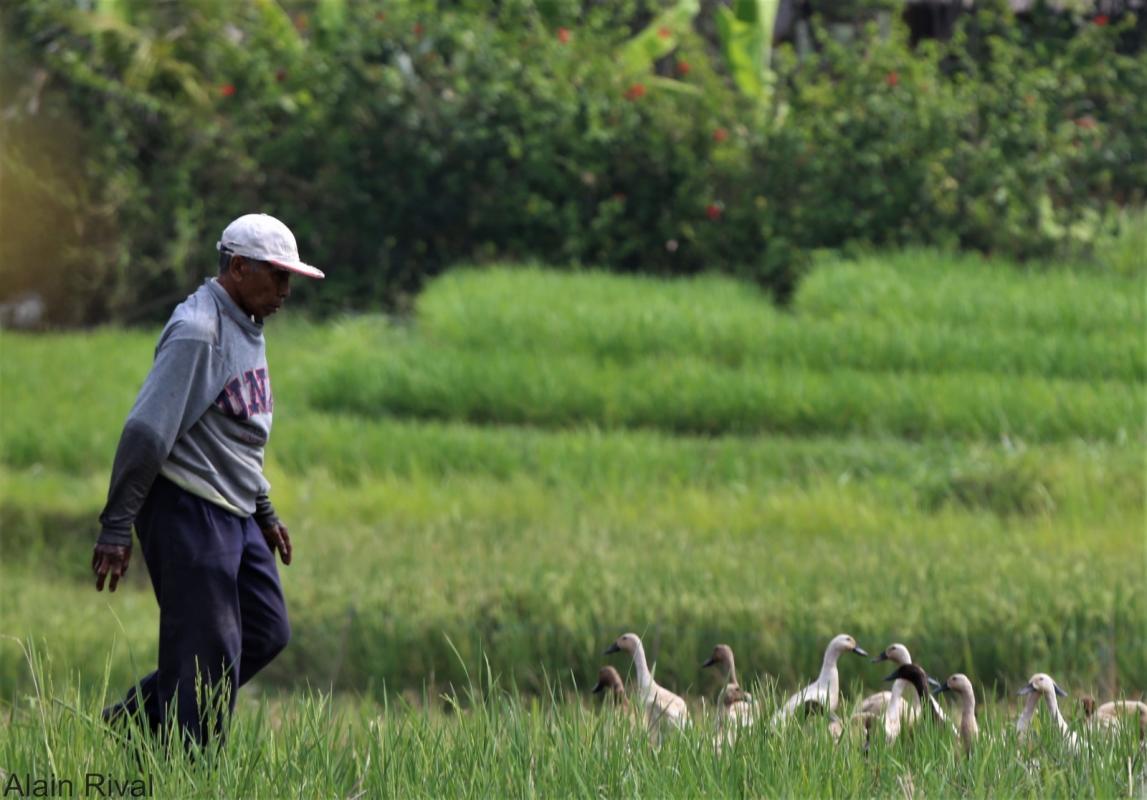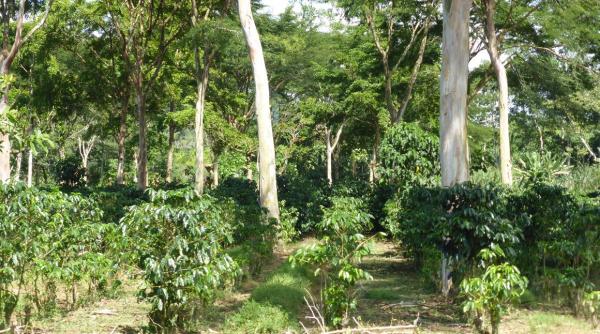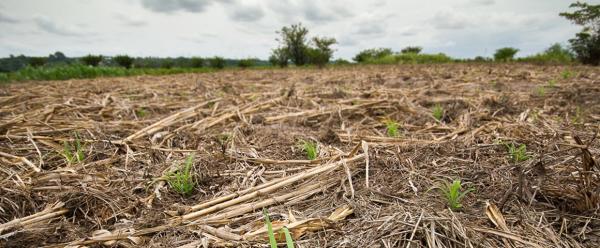Call to action 16 April 2025
- Home
- Press area
- Press releases
- agriculture agroecological transition IAASTD
Agroecology is at the heart of the international debate on the transformation of agrifood systems

Certain agroecological methods consist in combining crops and livestock. Here, a traditional duck farm alongside rice paddies in Bali (Indonesia) © A. Rival, CIRAD
In a new book, Transformation of our food systems - the making of a paradigm shift, 40 international experts set out the highlights and trends in food production since 2009, when the groundbreaking IAASTD report on global agriculture was published. The report, published under the auspices of the UN and the World Bank, triggered a paradigm shift in the perception of the global food system. At the time, its 400 authors raised the alarm with the following message: "Business as usual is not an option".
A decade on, most scientists, and a growing number of politicians, businesses and civil society stakeholders agree that our food systems are in urgent need of a fundamental transformation.
The new book, a full-text version of which is available on line, presents the results of 13 landmark scientific reports published over the past decade, and 15 updates on topics not sufficiently covered in the initial IAASTD report.
In the book, three economists from CIRAD look at several key issues for global agriculture: access to agricultural land, the impact of urbanization on agriculture, and land use scenarios and food security.
Access to land, a basic right that is often violated
While in 2009, the IAASTD report stated that small and medium-sized family farms should be priority targets for aid and agricultural development policy, many countries took a different path: that of foreign investment in large areas of land. CIRAD economist Ward Anseeuw looks back on these policies, which he sees as an easy way out but often prejudicial to local people. As he puts it, " foreign land purchases increase commercial pressure on territories and undermine local people's land rights".
Between 2000 and 2016, foreign land purchases worldwide totalled 42.2 million hectares, 26.7 million of which were for agricultural use. Some 10 million hectares were in Africa. The aim of such sales was to drive the development of large-scale farming, while ensuring food security in the countries concerned and improving rural infrastructures. However, many of the projects have since been abandoned. In Madagascar, for instance, just four of the 53 transactions recorded since 2000 are still operating. Yet of the 49 failed transactions, very few resulted in land being reallocated to local people.
The myth of the dichotomy between urban and rural areas
"Local food chains play a vital role in linking rural zones and urban consumers, providing job opportunities all the way along the chain", CIRAD's Frédéric Lançon explains.
The researcher looks again at the traditional split between urban areas (consumers) and rural areas (producers). He points out that in most low-income food-deficit countries, only 33% of the population is urban. Moreover, while urban and rural areas often seen as competing for human resources (labour) or natural resources (land or water), urbanization is actually more likely to be a source of dynamism and agricultural transformation.
A "Healthy" scenario to ensure global food security by 2050
In 2018, CIRAD and INRAE published the results of a foresight exercise centring on land use and food security in 2050. The tool, Agrimonde-Terra, served to establish five scenarios combining various hypotheses.
One of them, the "Healthy" scenario, proposes rethinking the agricultural system and seeking to ensure self-sufficiency by means of agroecology. Agroecological production systems, which are generally based on crop diversification, mixed crop-livestock farming and agroforestry, are characterized by their use of local, recycled inputs and of autonomous biological regulation mechanisms. "To achieve healthier diets by 2050, we need to diversify our crop and livestock farming systems", says CIRAD's Marie de Lattre-Gasquet.
Agroecology is at the heart of the international debate
To write the book, a consultative group of 16 people involved in the IAASTD, which included Marie de Lattre-Gasquet, was set up. “This combination of international views and perspectives is a treasure trove", says food and farming activist Benny Haerlin, an NGO representative in the IAASTD bureau.
The book was published in the run-up to the High-Level Special Event on Global Governance of Food Security and Nutrition, organized by the UN Committee on World Food Security (CFS). The event, which is entirely virtual, is for the first time placing agroecology centre-stage. The decision-makers present will also be discussing the international efforts required to "build back better" following Covid-19.
"This book clearly proves from various perspectives that the agroecological approach is by far the most important and fundamental pathway to ‘build back better’ and to make the shift towards sustainable food systems", says World Food Prize winner and former co-president of the IAASTD Hans Herren.
The eight key messages of the book 1. “Business as usual” is (still) not an option. A radical transformation of food systems is necessary. 2. Failure to make progress at national and global levels is due primarily to lack of political will, power imbalances and system lock-ins (path dependency, export orientation, expectation of cheap food etc). 3. We cannot solve today’s multiple, converging and accelerating crises with uni-dimensional, linear, reductionist or mechanistic responses. We need, rather, to embrace a food systems approach with solutions that have multiple, converging and positively reinforcing outcomes that bring beneficial synergistic effects across multiple domains. 4. Progress towards a livable and viable future requires deeply participatory democratic processes and cannot be attained without attention to basic rights – in particular the rights of farmers, women, Indigenous peoples and other people working in rural areas. 5. Stabilizing climate and reversing trends in biodiversity losses requires transforming agri-food systems toward agroecological systems, reducing food waste and loss as well as meat consumption in most regions, and prioritizing and valuing natural, social and human capital. 6. Promotion of healthy, diversified and sustainable diets can both reduce the major forms of malnutrition and offer multiple reinforcing co-benefits to human and ecological health. 7. Rebalancing power in the agri-food system requires action to both curtail the power of dominant corporations and large businesses that underpin the industrial food system and to provide space for different trade and marketing systems that empower and allow small-scale and peasant farmers, indigenous peoples, women, and rural and urban communities to flourish. 8. Systems transformation requires a re-visioning and re-centring of values of equity, reciprocity and solidarity; principles of democracy, justice and collectivity; and the recognition that humans exist within, not outside of, nature. |
Reference
Hans R. Herren, Benedikt Haerlin, IAASTD+10 Advisory Group. 2020. Transformation of our food systems. The making of a paradigm shift . Zukunftsstiftung Landwirtschaft, Germany.
The book, along with the key messages and additional information can be downloaded free of charge here: www.globalagriculture.org/transformation.



























